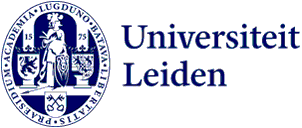
PhD-Student Maia Casna receives two awards for osteoarchaeological research
PhD-student Maia has received multiple awards regarding her research on the impact of tobacco on the respiratory health of past Dutch populations.
Eve Cockburn Student Prize
The Elsevier Sponsored Award is awarded annually at the meeting of the Paleopathology Association as a recognition to the best student contributions (in paper or poster) to any aspect of paleopathology. Casna was awarded this prize on August 24th at the 24th Paleopathology Association Meeting in Leiden where she presented her latest research on the impact of tobacco on the respiratory health of past Dutch populations.
"This award is especially meaningful to me because the impact of tobacco on human health is a topic I am deeply passionate about, both scientifically and personally." Casna continues, "tobacco remains a significant cultural element in today’s society, and its profound integration into human history is truly fascinating. I believe that archaeology and history are crucial for understanding this cultural phenomenon's power. By studying its historical impact, we can better inform future policies and public health initiatives to address the risks associated with smoking. Receiving a prize for this presentation signifies that the Paleopathology Association, along with my colleagues, values the contribution that osteoarchaeology can make to understanding such a pressing modern issue. I feel deeply supported in my ongoing research into the impact of tobacco and am motivated to continue exploring this important topic in the future."

Early Career Achievement Prize Of The Oscar Montelius Foundation (OMF)
The OMF Trustees award this prize annually for an outstanding early career/early professional contribution to archaeological related work with broader societal impact. The prize is awarded during the opening ceremony of the European Association of Archaeologists meeting. This year, for the first time, an honorary mention was also awarded, and Casna was honored to be the recipient.
According to the jury, she was awarded the honorary mention due to her innovative and impactful research on the interplay between respiratory health and societal factors in past populations. The integration of medical expertise and radiographic techniques into her research provides new insights into how diseases affected historical and contemporary populations. According to the jury, she had demonstrated a strong commitment to public engagement by sharing her findings through national media and interactive programs for students. Additionally, her international collaborations and contributions to refining diagnostic criteria underscore her dedication to advancing the field of bioarchaeology.
Casna was genuinely shocked and deeply honored to receive this recognition, especially from such an influential association in the field of archaeology such the EAA. "It is incredibly gratifying to know that my work is acknowledged not only within my specialized area but also by the broader international archaeological community. The recognition feels surreal but I think it reinforces the significance of the impact that archaeological research can have on modern-day problems."
